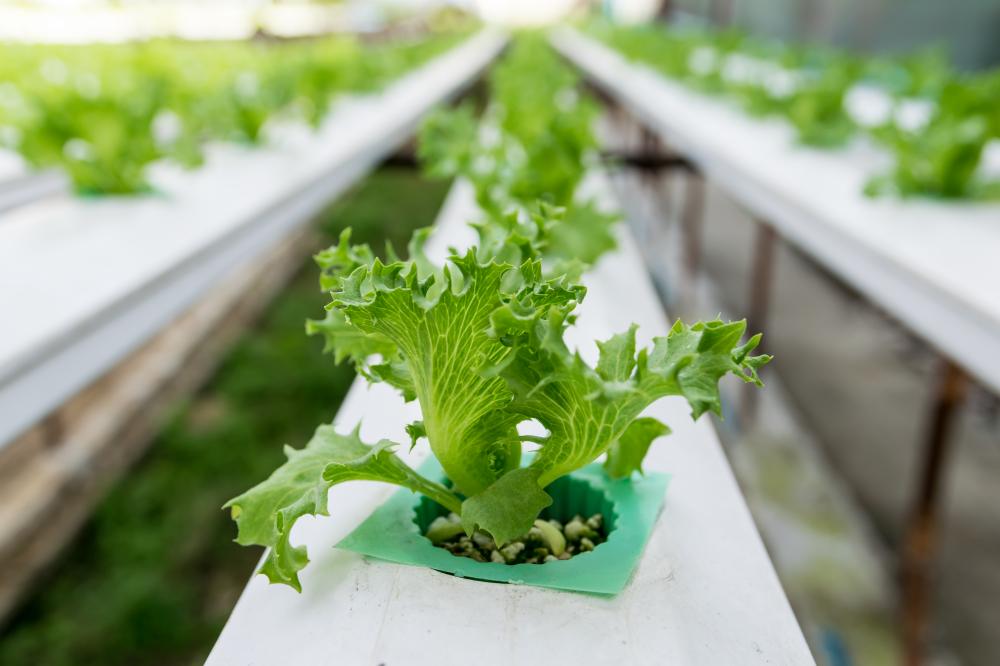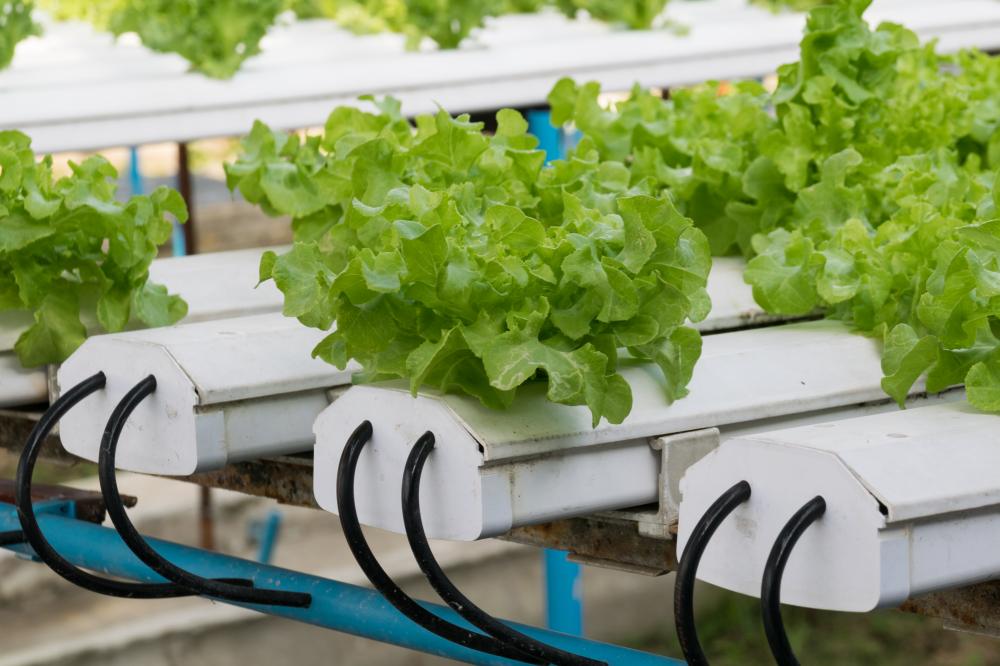
Introduction to Beginner Hydroponics
At RightFit Gardens, we believe that the journey into gardening, particularly through the lens of hydroponics, can transform not only spaces but lives. Beginner hydroponics opens a world where water meets greenery, marrying simplicity with innovation. This method, which allows for cultivating plants without soil, significantly reduces the space and water needed, making it ideal for urban settings or areas with challenging soil conditions.
Why Hydroponics?
Gardening is not a one-size-fits-all endeavor, and hydroponics presents a vibrant alternative to traditional soil-based gardening. One of the magical aspects of beginning with hydroponics is its efficiency–using up to 90% less water than traditional farming methods. Additionally, it offers a controlled environment, minimizing pests and diseases while enabling year-round growth, a boon for those of us craving fresh basil in the depths of winter.
Getting Started with Hydroponics
Embarking on beginner hydroponics can seem daunting, but it’s less about having a green thumb and more about understanding the basics. It starts with choosing the right system. From wick systems to deep water culture, each has its nuances and suitability depending on the plants you wish to grow and the space available.
Choosing Plants for Hydroponics
Not all plants are created equal when it comes to hydroponic gardening. Leafy greens such as lettuce, spinach, and herbs thrive in hydroponic environments, making them excellent candidates for beginners. These plants not only adapt well to the hydroponic setup but also grow rapidly, providing quick rewards for your efforts.
In my early gardening days, I revelled in the simplicity of starting with such greens. Their resilience and speed of growth were encouraging, offering tangible proof of success in a relatively short period.
Building Your Hydroponic System
Constructing a beginner hydroponics setup might sound like crafting a spaceship, but it’s significantly more grounded. Start simple: a small wick system or a straightforward deep water culture setup can be both affordable and satisfying to create. Remember, the goal is to familiarize yourself with the process, not to become an engineer overnight.
Essential Equipment and Supplies
- Reservoir to hold the nutrient solution
- Grow tray or platform
- Air and water pumps (depending on system)
- Light source, preferably LED grow lights
- Hydroponic nutrients
- Medium for root support, like rockwool or clay pebbles
Maintaining Your Hydroponic Garden
Care for a hydroponic garden transcends mere watering. Monitoring pH and nutrient levels becomes your new routine, ensuring your plants are devouring exactly what they need. I learned quickly that diligence in these areas pays off in lush, vigorous growth.
Lighting is another aspect that requires attention. Depending on your setup, ensuring your plants get enough ‘sunlight’–even if it’s from an LED source–is paramount. This is where timers become an invaluable ally, helping mimic natural daylight cycles.
Troubleshooting Common Issues
Even in an optimal setup, issues can arise, from nutrient imbalances to unwelcome algae. Early on, I faced challenges with nutrient deficiencies. It was disheartening at first, but it taught me the importance of regular testing and adjustment. Algae, another common foe, can be managed by controlling light exposure to the nutrient solution and maintaining cleanliness.
Benefits of Hydroponic Gardening
The rewards of beginner hydroponics extend beyond the harvest. It’s about sustainability–using fewer resources more efficiently. It’s also deeply educational, offering insights into plant biology and chemistry. Most of all, it’s empowering, providing food security and the gratification of self-sufficiency.
Expanding Your Hydroponic Garden
As your confidence grows, so can your garden. Transitioning from beginner hydroponics to more sophisticated systems or diverse plant varieties offers endless possibilities. Each plant added, system tweaked, or challenge overcome adds layers to your gardening journey, enriching your experience and widening your skillset.
Reflecting on my path from novice to now, it’s clear that hydroponics isn’t just a gardening method–it’s a gateway to a deeper understanding of our relationship with nature, food, and sustainability.
Connecting with a Community
One thing I didn’t anticipate was how beginner hydroponics would connect me to a broader community of enthusiasts. Sharing successes, failures, and tips with fellow gardeners has not only broadened my knowledge but has also enriched my life with new friendships and perspectives.
At RightFit Gardens, we invite you on this journey. Explore, experiment, and connect. Whether it’s through our articles, participating in forums, or simply reaching out to a neighbor embarking on their hydroponic adventure, remember that every gardener’s story is unique. And each plant nurtured is a step toward a happier, greener world.
Beginner hydroponics is more than just a starting point; it’s a doorway to a lifelong journey of learning, growth, and connection. At RightFit Gardens, our mission is to guide and inspire you through every step of that journey. Gardening isn’t just a hobby–it’s a way of life. Let’s grow together and make our world a little greener, one plant at a time.

How do I start hydroponics for beginners?
Starting a hydroponic garden as a beginner might seem complex, but it’s quite straightforward once you understand the basics. At RightFit Gardens, we recommend beginning with a simple system, such as a wick or deep water culture, which does not require sophisticated equipment or extensive horticultural knowledge. First, focus on acquiring the essential supplies: a reservoir for your nutrient solution, a grow light (LEDs are highly efficient), hydroponic nutrients, and a medium for root support. Selecting easy-to-grow plants like lettuce or basil can also provide a rewarding first experience. Remember, the journey into hydroponics is a learning process. Every minor adjustment and observation is a step towards mastering this innovative gardening method.
What is the easiest hydroponic plant for beginners?
Leafy greens, particularly lettuce, are often hailed as the easiest and most rewarding plants for beginner hydroponic gardeners. At RightFit Gardens, we’ve seen countless first-time gardeners beam with pride over their lush, green lettuce grown in simple hydroponic setups. Lettuce adapts well to most hydroponic systems and grows relatively quickly, offering tangible results in a short period. This early success can be incredibly encouraging, building your confidence in hydroponic gardening. Plus, there’s nothing like the taste of fresh lettuce straight from your garden to inspire you to expand your hydroponic ventures.
Is hydroponics easy for beginners?
Yes, hydroponics can be surprisingly easy for beginners, especially when approached with a willing spirit to learn and adapt. While it might seem daunting at first, with its reliance on water rather than soil and the need to monitor nutrient levels, the basics can be mastered quickly. Many beginners at RightFit Gardens start with a sense of trepidation, only to find themselves deeply engrossed and proficient in the art within months. The key is starting small, choosing the right system and plants for your level of commitment, and not being afraid to make mistakes. After all, every mistake is a lesson that brings you one step closer to a bountiful hydroponic garden.
What is the best hydroponic system to start with?
For those venturing into hydroponics for the first time, we at RightFit Gardens often recommend starting with either a wick system or deep water culture (DWC). These systems are ideal for beginners due to their simplicity, low cost, and minimal maintenance requirements. A wick system, being the more straightforward of the two, is excellent for someone who wants to get a feel for hydroponic gardening without worrying about electrical components. On the other hand, a DWC system may involve a bit more setup with air pumps and stones but is still relatively easy to manage and great for observing rapid plant growth. Both systems provide a solid foundation for understanding hydroponics and can be scaled or modified as you gain more experience.
Are there any common misconceptions about hydroponic gardening?
A common misconception about hydroponic gardening is that it’s excessively expensive and technically complicated. While it’s true that setting up a large-scale hydroponic system can involve significant investment, beginner setups can be quite affordable and straightforward. At RightFit Gardens, we’ve seen inventive hydroponic gardens made from repurposed household items, proving that creativity can significantly reduce costs. Another misconception is that hydroponics requires a lot of space. In reality, one of the benefits of hydroponic systems is their flexibility and efficiency, making them perfect for urban gardeners with limited space. The most important thing to remember is that hydroponics, like any gardening method, is a journey of learning and growth. With patience and practice, anyone can become adept at this rewarding gardening technique.
Hydroponics Resources
- South Dakota State University Extension – Offers a comprehensive guide to hydroponic gardening, including system types, plant selection, and troubleshooting tips.
- National Agricultural Library – Provides valuable research and resources on hydroponic farming practices and their environmental impact.
- Michigan State University Extension – Features articles and videos on setting up and maintaining hydroponic systems for beginners.

